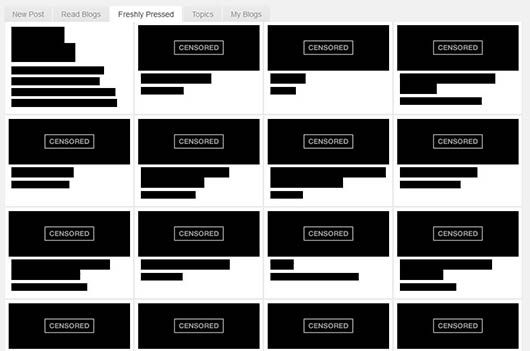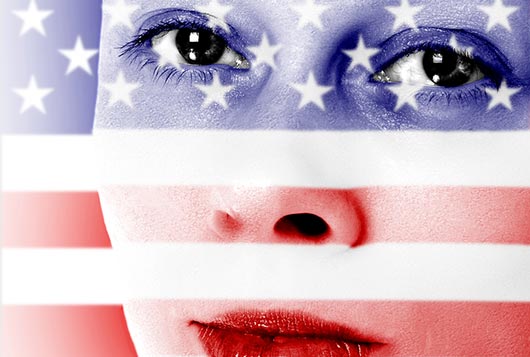What’s the big deal, you say? Sopa is delicioso and cute babies have pipas. So how bad can two little Internet laws be?
Well, in Washington, D.C., SOPA stands for the Stop Online Piracy Act, a bill that the House of Representatives is voting on January 24. PIPA is short for the Protect Intellectual Property Act (PIPA), a bill introduced in the Senate, which will be voted on in February. Both sound harmless on the surface: Yes! Pirates are mean! Rogue Websites, evil. Grrr! Protect Us! Quite possibly, that’s as far as Congress could read and fully comprehend. Because when you look at the bills closely, they don’t make one lick of sense. And time to knock the sense back into our legislators is running out.
According to these bills, we’ve all committed these crimes, and are repeat offenders ad nauseum. User Generated Content (UGC) is what makes the Internet go round. Say, someone sends you a news link, or shares an album on Flickr or posts a YouTube video on Facebook, you click, right? Whether you post it yourself or share it, you’re not “sticking it to the man.” You’re just looking for more information, expand your horizons, or, god forbid, a laugh. But big business doesn’t think it’s funny; they claim they’re bleeding money due to online piracy, and they have powerful lobbyists convincing Congress to propose these bills. So if one tiny post is accused of copyright infringement, the government would have the authority to shut down an entire website, rendering it inaccessible, It’s why sites like Wikipedia, Boing Boing, Reddit and WordPress all went dark on January 18, to protest these proposed laws and start SOPAStrike.com. Effectively, they showed that the World Wide Web would be a very quiet place.
Internet copyright laws are already on the books. The Digital Millennium Copyright Act (DMCA) passed by some of the same old faces in Congress in 1998 and signed by President Clinton, grants any copyright holder with digital rights management (DRM). So, let’s say I post a picture of Pocahontas on my blog. If Disney’s lawyers contact me and tell me to take it down, so long as I comply within their timeframe, no harm, no foul. That’s the beauty of the Internet. Everything is temporal. Make a mistake. Erase. Fix. Republish. Maybe issue a correction, so as to not be a jerk.
What SOPA and PIPA essentially would do, given the same scenario, is bypass that step. Instead, it would grant the US Department of Justice or the copyright holder the power to shut my entire blog down, and prevent any Internet Service Provider from accessing it just because someone logged an inquiry. If SOPA or PIPA passes, every independent web site (including Mamiverse), would have to vet their entire archive, their entire roster of bloggers to make sure that nothing that has ever been posted violates these draconian laws because even the allegation can shut a site down. As far as new businesses, investors, unwilling to take risks, might not invest in start-ups, thus affecting entrepreneurship, not to mention regular citizen-consumers, allowing an entire community to be punished for the act of one.
Congress has already tried to regulate the Web before. Remember Napster? How they wanted to throw 13-year-olds in jail for downloading a song? Well, this isn’t too far removed from that. SOPA and PIPA won’t protect li’l ol’ me. Or you. Rather, it lets large, already powerful media corporations wield even more control over what, where and when their audiences can see it. Anyone who messes with that button could go to jail for up to five years.
One of the freedoms that we enjoy in the United States is freedom of expression, without fear of government censorship or internment. Many Latino families escaped those iron-fist dictatorships, particularly if they came here from their native homelands. Punishing the wily teenager or largely unassuming consumer doesn’t feel, well, very American.
Fortunately, many opponents of SOPA and PIPA have made it super easy for citizens to rally support. Many online petitions only require a few information fields, and some can even give you talking points and then ring your congressman or senator’s office directly! This is a cause worth supporting if you value the freedom of free-flowing information and ideas that the Internet offers you. And lest you think this is some right-wing conspiracy, just know that many co-sponsors of the SOPA bill are well-known Democrats, including Senate Majority Leader Harry Reid of Nevada, Sen. Barbara Boxer of California and Sen. Chuck Schumer of New York. So whether you’re red or blue, tell Congress to stop these bills! Go to SOPAstrike.com. To see a list of congress who support these bills, go to Pro Publica.
Email or call your representatives HOY!












